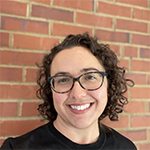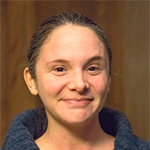
- This event has passed.
WORKSHOP – A Window of Opportunity for Equitable Climate and Agriculture Policy: Possibilities and Pitfalls
May 13, 2021 @ 9:00 am – 10:30 am PDT
Presented by Walton Family Foundation, Funders for Regenerative Agriculture (FORA), and Sustainable Agriculture and Food Systems Funders (SAFSF)
The agriculture industry has an enormous responsibility to reduce and reverse its greenhouse gas emissions (GHGs) in the face of climate change, all while reckoning with an industrial system that marginalizes historically underserved communities and identities.
With a new Administration, there is currently opportunity and political will to advance policies at the intersection of agriculture and climate change, as well as momentum in carbon markets both in the public and private realms. How might philanthropy effectively engage to drive policy and carbon markets towards real greenhouse gas reductions and regenerative practices that work for a broad spectrum of farmers and farm operations?
We will explore this critical question with an eye toward solutions that engage underserved communities, led by voices of farmers, community leaders, and policy experts. In an effort to favor engagement over presentation, the conversation will begin in plenary and move toward Q&A followed by breakout sessions.
Session goals:
- Discuss the possibilities and pitfalls of new agricultural policy.
- Educate funders around ways they can affect policy to support integrated and equitable policy solutions.
- Engage with key voices and perspectives to guide possible action.
Speakers
Pipa Elias – moderator, Walton Family Foundation

Pipa Elias is deputy director of the Environment Program at the Walton Family Foundation. Before joining the foundation, she worked at The Nature Conservancy, where she was Director of Agriculture for North America. Skilled at applying scientific research to advance policy and conservation solutions, Pipa leveraged collaborations to help producers meet the growing demand for food while protecting critical lands and waters. Prior to her work on the agriculture team at TNC, Pipa was a senior policy advisor, leading land use policy advocacy at the United Nations climate negotiations and other multilateral venues. In her eight years working on the UN climate negotiations she led a coalition of nearly a dozen NGOs that helped influence the system of incentives and measurements for the land-use sector in global climate agreements. Pipa also served as policy lead on the team that helped to publish a seminal paper on Natural Climate Solutions. Pipa received her M.S. in forestry from Virginia Tech, and her B.S. in environmental science from the University of Notre Dame.
Emily Bruner, American Farmland Trust

Dr. Bruner has been a proponent of conservation agriculture for over a decade. As the Midwest Science Director for American Farmland Trust, Dr. Bruner’s work focuses on identifying ways to accelerate adoption of soil health practices while simultaneously increasing the resiliency and productivity of Midwest farms. Prior to her current role, she served as the Director for the Vigo County Soil and Water Conservation District, as a Hydrologist with the United States Forest Service, an adjunct faculty member at Saint Mary of the Woods College, and as an Extension Associate for Natural Resources. Dr. Bruner’s work on nitrogen cycling in agricultural systems also led her to DC to investigate climate change mitigation policy as a Research Fellow with the Congressional Research Service. Bruner earned her PhD in Soil Science from Washington State University and has a Bachelor of Science Degree in Conservation and Natural Resource Management with a minor in Sustainable Agriculture from the University of Kentucky.
Maisah Khan, Mississippi River Network

Bio coming soon
Kristin Weeks-Duncanson, Highland Family Farms

Bio coming soon
Cristel Zoebisch, National Sustainable Agriculture Coalition

Cristel holds an M.A. in Food Studies from New York University, where she focused on food and agricultural economics and policy, and she earned her B.A. in Economics from the University of Texas at Austin. Her graduate thesis analyzed three farm bill programs that support beginning, socially disadvantaged and veteran farmers and ranchers. Her previous work includes participating on a program evaluation team for the NYC Mayor’s Office of Food Policy, conducting food policy advocacy and educational activities for a national nonprofit organization, and consulting. She staffs NSAC’s Conservation, Energy and Environment Committee and helps coordinate its Climate Change Subcommittee.